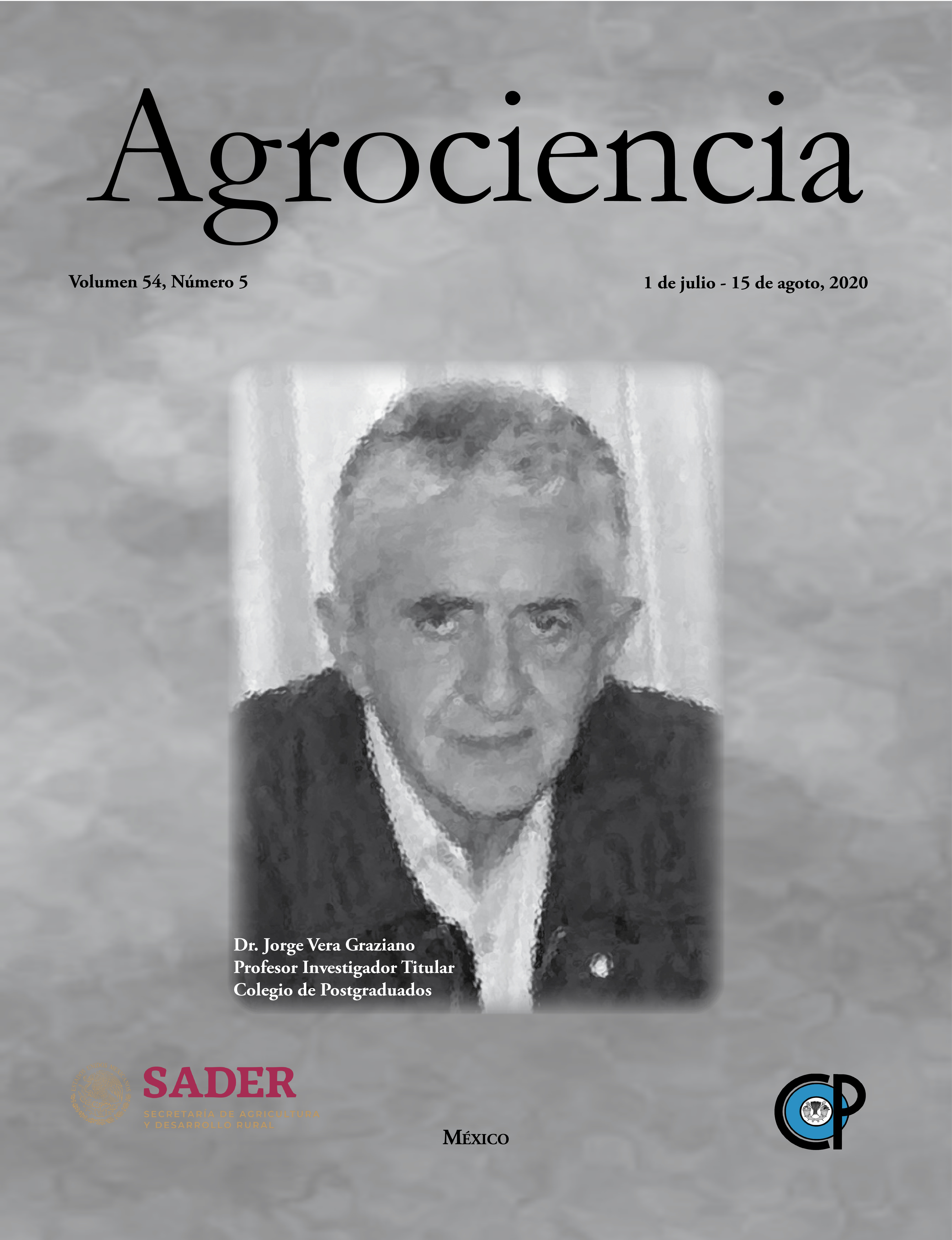WEIGHT AND QUANTITATIVE QUALITY CHARACTERS IN FRUITS OF M1 PLANTS OF Physalis peruviana L. FROM SEEDS IRRADIATED WITH 60Co
DOI:
https://doi.org/10.47163/agrociencia.v54i5.2126Keywords:
Physalis peruviana, uchuva, quality, mutagenicity, gamma rays, variability.Abstract
Physalis peruviana L. is native to the Andes and its fruit is consumed fresh for its vitamin content and medicinal properties. The growth of the plants of this species is heterogeneous, as it has limited genetic improvement because it is a wild species. Physical and chemical mutagens applied to seeds or organs for propagation can generate new varieties with changes in morphology, yield, adaptability and resistance. The objective of this research was to determine the effect of seed irradiation on the fruit quality characteristics of M1 plants of Physalis peruviana L., and the hypothesis was that at least one dose of irradiation on M1 plants of uchuva (cape gooseberry) favorably modifies the fruit quality characteristics. The study was conducted in a greenhouse with UVII-720 plastic cover, from August 2015 to February 2016. The treatments were 14 doses of gamma 60Co (0 to 275 Gy) and the experimental design was completely randomized with six replicates. The radiation reduced the weight of the fruit with calyx from 3 to 32% and the weight without calyx from 3 to 29%. Fruit sweetness was reduced at doses greater than 100 Gy, with the exception of 200 Gy; in contrast, firmness increased from 1 to 9% at the 100 and 75 Gy doses. Fruit size and shelf life were not affected. Seed irradiation with 60Co gamma rays negatively alters the weight and some variables of the fruit quality of P. peruviana mutant plants.
Additional Files
Published
Versions
- 29-12-2020 (2)
- 14-08-2020 (1)
Issue
Section
License
Agrociencia is published every 45 days, in an English format, and it is edited by the Colegio de Postgraduados. Mexico-Texcoco highway Km. 36.5, Montecillo, Texcoco, Estado de México, CP 56264, Telephone (52) 5959284427. www.colpos.mx. Editor-in-Chief: Dr. Fernando Carlos Gómez Merino. Rights Reserved for Exclusive Use: 04-2021-031913431800-203, e-ISSN: 2521-9766, granted by the National Institute for Author Right.













